Fifty years after 1968, the year of protests, increasing attacks on the right to assembly must be addressed
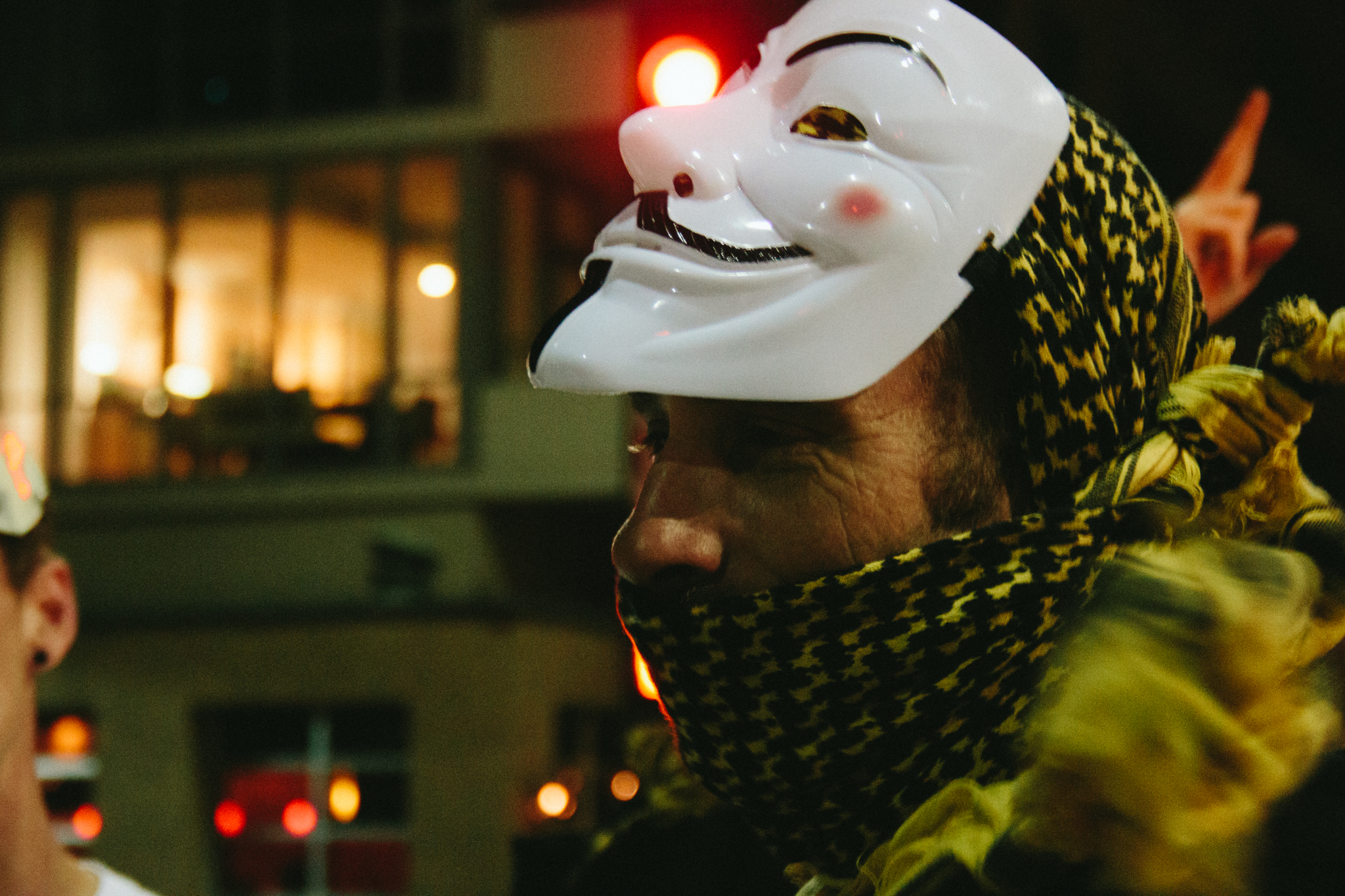

Fifty years after 1968, the year of protests, increasing attacks on the right to assembly must be addressed
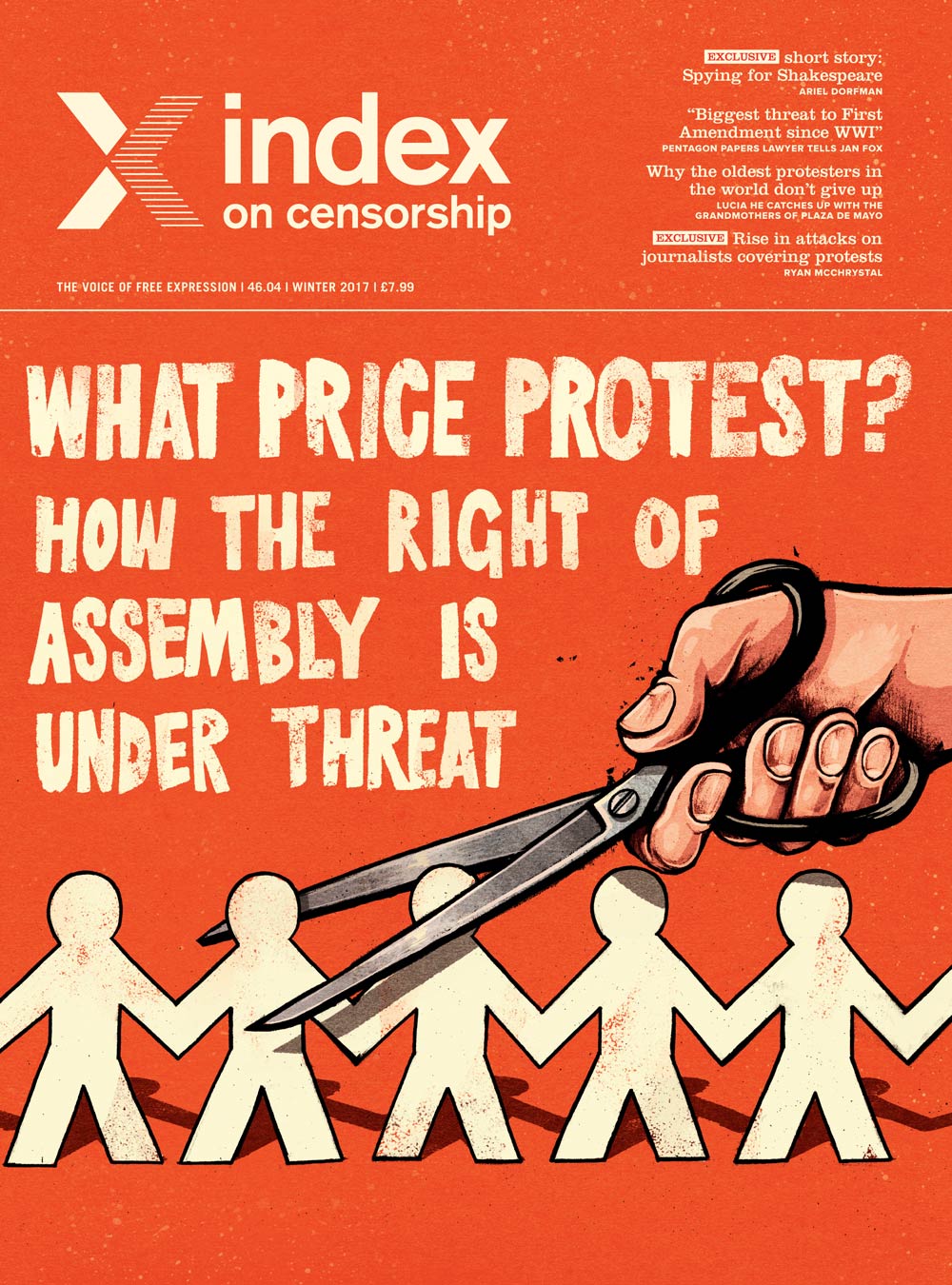
In homage to the 50th anniversary of 1968, the year the world took to the streets, the winter issue of Index on Censorship magazine looks at all aspects related to protest.

The winter 2017 Index on Censorship magazine explores 1968 – the year the world took to the streets – to discover whether our rights to protest are endangered today. Micah White proposes a novel way for protest to remain relevant. Author and journalist Robert McCrum revisits the Prague Spring to ask whether it is still remembered. Award-winning author Ariel Dorfman’s new short story — Shakespeare, Cervantes and spies — has it all. Anuradha Roy writes that tired of being harassed and treated as second class citizens, Indian women are taking to the streets. Editorial: Poor excuses for not protecting protest
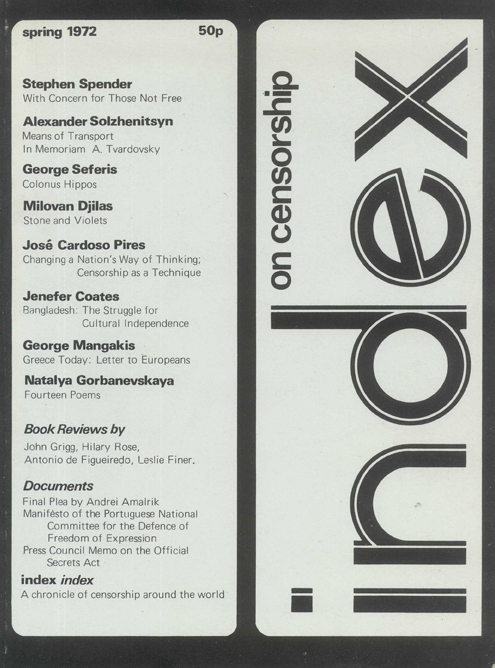
Looking back, it is easy enough to trace the various influences that brought Index on Censorship magazine into existence.
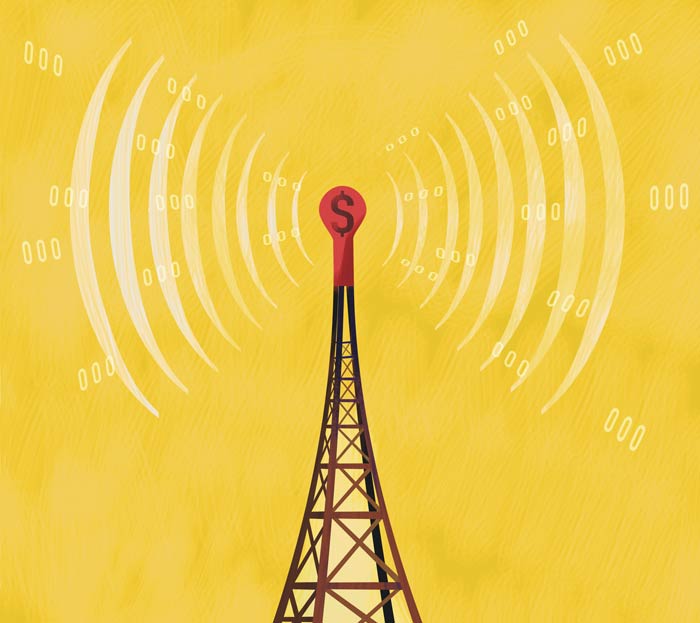
From broadcasting uprisings to employing Russian spies, Radio Free Europe brings news to poorly served regions. Sally Gimson looks at the station’s history and asks if it is still needed today.
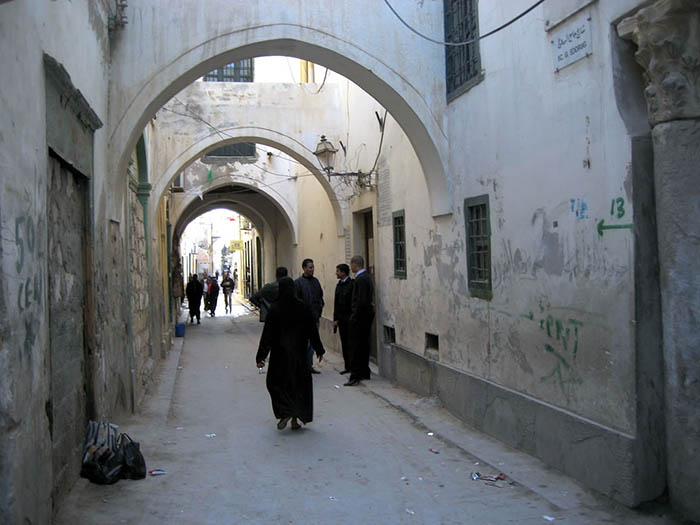
The dangers of selling “the wrong” kind of book in Libya are many and varied and yet one chain of bookshops is still open for business
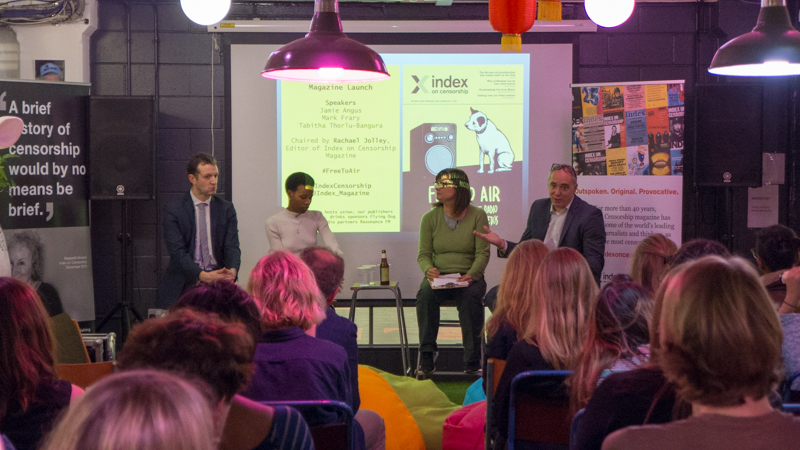
[vc_row][vc_column][vc_column_text][/vc_column_text][/vc_column][/vc_row][vc_row][vc_column][vc_column_text]Despite predictions of its death, the retro medium of radio is back. From community-based stations like London's RTS Radio, which encourages...
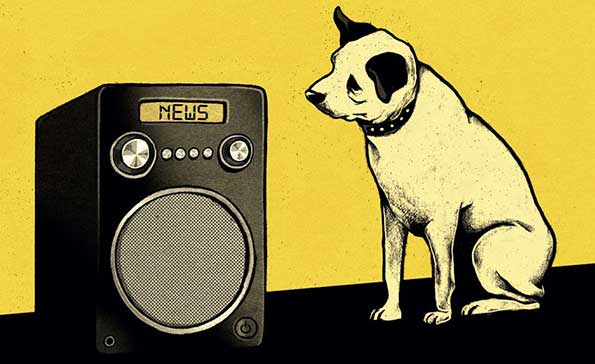
Join Index on Censorship magazine for the launch of the autumn 2017 celebrating all things radio.

In the Autumn issue of Index on Censorship magazine, we explore the censorship of the female nipple, which occurs offline and on in many areas around the world.
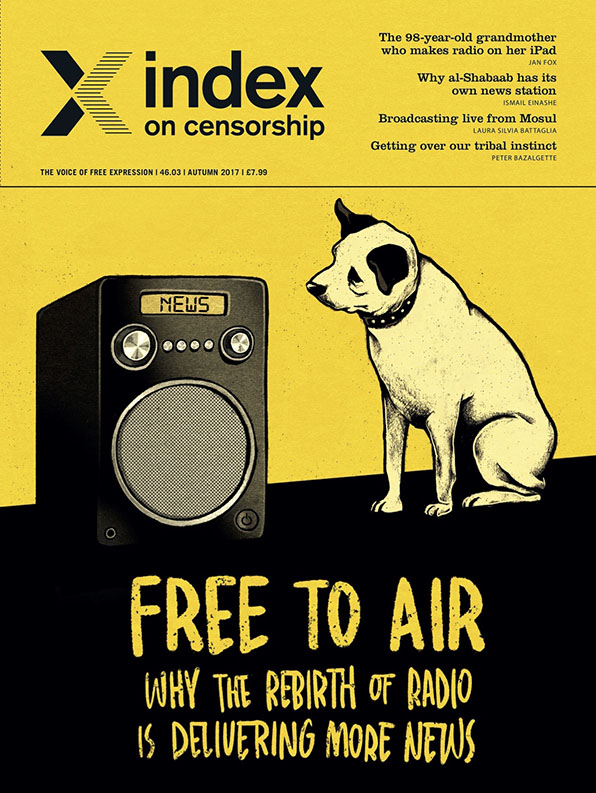
The retro medium of radio is back, as we explore in the autumn issue of Index on Censorship magazine 2017, which is excellent news for the delivery of well, news.
A quarterly journal set up in 1972, Index on Censorship magazine has published oppressed writers and refused to be silenced across hundreds of issues.
The brainchild of the poet Stephen Spender, and translator Michael Scammell, the magazine’s very first issue included a never-before-published poem, written while serving a sentence in a labour camp, by the Soviet dissident Aleksandr Solzhenitsyn, who went on to win a Nobel prize later that year.
The magazine continued to be a thorn in the side of Soviet censors, but its scope was far wider. From the beginning, Index declared its mission to stand up for free expression as a fundamental human right for people everywhere – it was particularly vocal in its coverage of the oppressive military regimes of southern Europe and Latin America but was also clear that freedom of expression was not only a problem in faraway dictatorships. The winter 1979 issue, for example, reported on a controversy in the United States in which the Public Broadcasting Service had heavily edited a documentary about racism in Britain and then gone to court attempting to prevent screenings of the original version. Learn more.